Marcel van Marrewijk's Blog, page 45
May 28, 2019
How can you make your guests leave the hotel more creative, productive and smart after a day of flexible working?
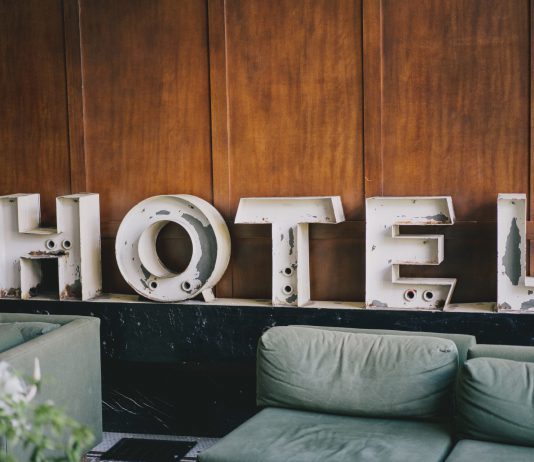
More and more hotels are joining as Powered by Seats2meet location: Moxy, Ibis style hotels, Radisson Blu Palace, Carlton President, High Five Hotel, Novotel, The Dylan, Hotel Mercuré Vé, Short Stay Houses and Canal House.
Many hotels are trying to establish a closer connection with the neighborhood in which they are located. There is a strong demand for them to become “the living room” of the city. Hotel lounges are often empty after breakfast and hotels want travelers to connect with locals, which makes a good reason to open the hotel doors for entrepreneurs, freelancers and self-employed professionals from the neighborhood!
Experience economy
Hospitality is at the heart of hotels. Many hotels focus on offering a full experience, from check-in to check-out. Joseph Pine is a co-founder of Strategic Horizons LLP, an idea studio that helps companies to come up with new ways to add value. One of his books is called “The Experience Economy”.
From coffee bean to fancy-coffee-name-with-soy-or-oat-milk-in-a-very-large-glass-with-cocoa powder

But what does the experience economy mean? In short: you add “extras” to a product or service to achieve more value.
Think of coffee 
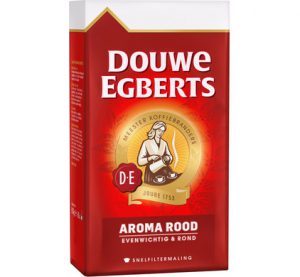
A coffee bean is worth 2 cents.
After harvesting and cleaning / drying the beans, the bean is worth more.
If the beans are roasted and packaged for the consumer (such as Douwe Egberts), you can already ask a few euros for it.
However, if you offer this coffee in a coffee bar in a nice glass and you give the coffee a fancy name that you can hardly say, you can ask 6 euros for it.
You can ask that 6 euro because an experience is added to the original product. Hence, this is the “experience economy”.
The experience economy is sooo 2018
However, if you really want to stay relevant in this rapidly changing world, then it should go much further than just offering an “experience”. The experience is fun and special a few times, but the 5th time you come to the same cafe, the experience is no longer that special and maybe it even becomes less fun. To make sure that you keep coming, that cafe has to offer more. Namely a “transformation”. This may sound quite intense, but what Pine means by this is that you have to offer something that literally changes the visitor a bit. How? For example, by facilitating a meeting that your guest did not expect but is relevant for him (serendipity).
Seats2meet has been facilitating serendipity for more than 10 years. It is therefore not surprising that hotels are massively joining as Powered by Seats2meet locations.
Do you also want your guests to leave your hotel more creative, smart and productive? Then also register your hotel as a part of our network!
Register now
How can you make your guests leave the hotel more creative, productive and smart after a day of flexible working?

More and more hotels are joining as Powered by Seats2meet location: Moxy, Ibis style hotels, Radisson Blu Palace, Carlton President, High Five Hotel, Novotel, The Dylan, Hotel Mercuré Vé, Short Stay Houses and Canal House.
Many hotels are trying to establish a closer connection with the neighborhood in which they are located. There is a strong demand for them to become “the living room” of the city. Hotel lounges are often empty after breakfast and hotels want travelers to connect with locals, which makes a good reason to open the hotel doors for entrepreneurs, freelancers and self-employed professionals from the neighborhood!
Experience economy
Hospitality is at the heart of hotels. Many hotels focus on offering a full experience, from check-in to check-out. Joseph Pine is a co-founder of Strategic Horizons LLP, an idea studio that helps companies to come up with new ways to add value. One of his books is called “The Experience Economy”.
From coffee bean to fancy-coffee-name-with-soy-or-oat-milk-in-a-very-large-glass-with-cocoa powder

But what does the experience economy mean? In short: you add “extras” to a product or service to achieve more value.
Think of coffee 

A coffee bean is worth 2 cents.
After harvesting and cleaning / drying the beans, the bean is worth more.
If the beans are roasted and packaged for the consumer (such as Douwe Egberts), you can already ask a few euros for it.
However, if you offer this coffee in a coffee bar in a nice glass and you give the coffee a fancy name that you can hardly say, you can ask 6 euros for it.
You can ask that 6 euro because an experience is added to the original product. Hence, this is the “experience economy”.
The experience economy is sooo 2018
However, if you really want to stay relevant in this rapidly changing world, then it should go much further than just offering an “experience”. The experience is fun and special a few times, but the 5th time you come to the same cafe, the experience is no longer that special and maybe it even becomes less fun. To make sure that you keep coming, that cafe has to offer more. Namely a “transformation”. This may sound quite intense, but what Pine means by this is that you have to offer something that literally changes the visitor a bit. How? For example, by facilitating a meeting that your guest did not expect but is relevant for him (serendipity).
Seats2meet has been facilitating serendipity for more than 10 years. It is therefore not surprising that hotels are massively joining as Powered by Seats2meet locations.
Do you also want your guests to leave your hotel more creative, smart and productive? Then also register your hotel as a part of our network!
Register now
How can you make your guests leave the hotel more creative, productive and smart after a day of flexible working?

More and more hotels are joining as Powered by Seats2meet location: Moxy, Ibis style hotels, Radisson Blu Palace, Carlton President, High Five Hotel, Novotel, The Dylan, Hotel Mercuré Vé, Short Stay Houses and Canal House.
Many hotels are trying to establish a closer connection with the neighborhood in which they are located. There is a strong demand for them to become “the living room” of the city. Hotel lounges are often empty after breakfast and hotels want travelers to connect with locals, which makes a good reason to open the hotel doors for entrepreneurs, freelancers and self-employed professionals from the neighborhood!
Experience economy
Hospitality is at the heart of hotels. Many hotels focus on offering a full experience, from check-in to check-out. Joseph Pine is a co-founder of Strategic Horizons LLP, an idea studio that helps companies to come up with new ways to add value. One of his books is called “The Experience Economy”.
From coffee bean to fancy-coffee-name-with-soy-or-oat-milk-in-a-very-large-glass-with-cocoa powder

But what does the experience economy mean? In short: you add “extras” to a product or service to achieve more value.
Think of coffee 

A coffee bean is worth 2 cents.
After harvesting and cleaning / drying the beans, the bean is worth more.
If the beans are roasted and packaged for the consumer (such as Douwe Egberts), you can already ask a few euros for it.
However, if you offer this coffee in a coffee bar in a nice glass and you give the coffee a fancy name that you can hardly say, you can ask 6 euros for it.
You can ask that 6 euro because an experience is added to the original product. Hence, this is the “experience economy”.
The experience economy is sooo 2018
However, if you really want to stay relevant in this rapidly changing world, then it should go much further than just offering an “experience”. The experience is fun and special a few times, but the 5th time you come to the same cafe, the experience is no longer that special and maybe it even becomes less fun. To make sure that you keep coming, that cafe has to offer more. Namely a “transformation”. This may sound quite intense, but what Pine means by this is that you have to offer something that literally changes the visitor a bit. How? For example, by facilitating a meeting that your guest did not expect but is relevant for him (serendipity).
Seats2meet has been facilitating serendipity for more than 10 years. It is therefore not surprising that hotels are massively joining as Powered by Seats2meet locations.
Do you also want your guests to leave your hotel more creative, smart and productive? Then also register your hotel as a part of our network!
Register now
How can you make your guests leave the hotel more creative, productive and smart after a day of flexible working?

More and more hotels are joining as Powered by Seats2meet location: Moxy, Ibis style hotels, Radisson Blu Palace, Carlton President, High Five Hotel, Novotel, The Dylan, Hotel Mercuré Vé, Short Stay Houses and Canal House.
Many hotels are trying to establish a closer connection with the neighborhood in which they are located. There is a strong demand for them to become “the living room” of the city. Hotel lounges are often empty after breakfast and hotels want travelers to connect with locals, which makes a good reason to open the hotel doors for entrepreneurs, freelancers and self-employed professionals from the neighborhood!
Experience economy
Hospitality is at the heart of hotels. Many hotels focus on offering a full experience, from check-in to check-out. Joseph Pine is a co-founder of Strategic Horizons LLP, an idea studio that helps companies to come up with new ways to add value. One of his books is called “The Experience Economy”.
From coffee bean to fancy-coffee-name-with-soy-or-oat-milk-in-a-very-large-glass-with-cocoa powder

But what does the experience economy mean? In short: you add “extras” to a product or service to achieve more value.
Think of coffee 

A coffee bean is worth 2 cents.
After harvesting and cleaning / drying the beans, the bean is worth more.
If the beans are roasted and packaged for the consumer (such as Douwe Egberts), you can already ask a few euros for it.
However, if you offer this coffee in a coffee bar in a nice glass and you give the coffee a fancy name that you can hardly say, you can ask 6 euros for it.
You can ask that 6 euro because an experience is added to the original product. Hence, this is the “experience economy”.
The experience economy is sooo 2018
However, if you really want to stay relevant in this rapidly changing world, then it should go much further than just offering an “experience”. The experience is fun and special a few times, but the 5th time you come to the same cafe, the experience is no longer that special and maybe it even becomes less fun. To make sure that you keep coming, that cafe has to offer more. Namely a “transformation”. This may sound quite intense, but what Pine means by this is that you have to offer something that literally changes the visitor a bit. How? For example, by facilitating a meeting that your guest did not expect but is relevant for him (serendipity).
Seats2meet has been facilitating serendipity for more than 10 years. It is therefore not surprising that hotels are massively joining as Powered by Seats2meet locations.
Do you also want your guests to leave your hotel more creative, smart and productive? Then also register your hotel as a part of our network!
Register now
How can you make your guests leave the hotel more creative, productive and smart after a day of flexible working?

More and more hotels are joining as Powered by Seats2meet location: Moxy, Ibis style hotels, Radisson Blu Palace, Carlton President, High Five Hotel, Novotel, The Dylan, Hotel Mercuré Vé, Short Stay Houses and Canal House.
Many hotels are trying to establish a closer connection with the neighborhood in which they are located. There is a strong demand for them to become “the living room” of the city. Hotel lounges are often empty after breakfast and hotels want travelers to connect with locals, which makes a good reason to open the hotel doors for entrepreneurs, freelancers and self-employed professionals from the neighborhood!
Experience economy
Hospitality is at the heart of hotels. Many hotels focus on offering a full experience, from check-in to check-out. Joseph Pine is a co-founder of Strategic Horizons LLP, an idea studio that helps companies to come up with new ways to add value. One of his books is called “The Experience Economy”.
From coffee bean to fancy-coffee-name-with-soy-or-oat-milk-in-a-very-large-glass-with-cocoa powder

But what does the experience economy mean? In short: you add “extras” to a product or service to achieve more value.
Think of coffee 

A coffee bean is worth 2 cents.
After harvesting and cleaning / drying the beans, the bean is worth more.
If the beans are roasted and packaged for the consumer (such as Douwe Egberts), you can already ask a few euros for it.
However, if you offer this coffee in a coffee bar in a nice glass and you give the coffee a fancy name that you can hardly say, you can ask 6 euros for it.
You can ask that 6 euro because an experience is added to the original product. Hence, this is the “experience economy”.
The experience economy is sooo 2018
However, if you really want to stay relevant in this rapidly changing world, then it should go much further than just offering an “experience”. The experience is fun and special a few times, but the 5th time you come to the same cafe, the experience is no longer that special and maybe it even becomes less fun. To make sure that you keep coming, that cafe has to offer more. Namely a “transformation”. This may sound quite intense, but what Pine means by this is that you have to offer something that literally changes the visitor a bit. How? For example, by facilitating a meeting that your guest did not expect but is relevant for him (serendipity).
Seats2meet has been facilitating serendipity for more than 10 years. It is therefore not surprising that hotels are massively joining as Powered by Seats2meet locations.
Do you also want your guests to leave your hotel more creative, smart and productive? Then also register your hotel as a part of our network!
Register now
How can you make your guests leave the hotel more creative, productive and smart after a day of flexible working?

More and more hotels are joining as Powered by Seats2meet location: Moxy, Ibis style hotels, Radisson Blu Palace, Carlton President, High Five Hotel, Novotel, The Dylan, Hotel Mercuré Vé, Short Stay Houses and Canal House.
Many hotels are trying to establish a closer connection with the neighborhood in which they are located. There is a strong demand for them to become “the living room” of the city. Hotel lounges are often empty after breakfast and hotels want travelers to connect with locals, which makes a good reason to open the hotel doors for entrepreneurs, freelancers and self-employed professionals from the neighborhood!
Experience economy
Hospitality is at the heart of hotels. Many hotels focus on offering a full experience, from check-in to check-out. Joseph Pine is a co-founder of Strategic Horizons LLP, an idea studio that helps companies to come up with new ways to add value. One of his books is called “The Experience Economy”.
From coffee bean to fancy-coffee-name-with-soy-or-oat-milk-in-a-very-large-glass-with-cocoa powder

But what does the experience economy mean? In short: you add “extras” to a product or service to achieve more value.
Think of coffee 

A coffee bean is worth 2 cents.
After harvesting and cleaning / drying the beans, the bean is worth more.
If the beans are roasted and packaged for the consumer (such as Douwe Egberts), you can already ask a few euros for it.
However, if you offer this coffee in a coffee bar in a nice glass and you give the coffee a fancy name that you can hardly say, you can ask 6 euros for it.
You can ask that 6 euro because an experience is added to the original product. Hence, this is the “experience economy”.
The experience economy is sooo 2018
However, if you really want to stay relevant in this rapidly changing world, then it should go much further than just offering an “experience”. The experience is fun and special a few times, but the 5th time you come to the same cafe, the experience is no longer that special and maybe it even becomes less fun. To make sure that you keep coming, that cafe has to offer more. Namely a “transformation”. This may sound quite intense, but what Pine means by this is that you have to offer something that literally changes the visitor a bit. How? For example, by facilitating a meeting that your guest did not expect but is relevant for him (serendipity).
Seats2meet has been facilitating serendipity for more than 10 years. It is therefore not surprising that hotels are massively joining as Powered by Seats2meet locations.
Do you also want your guests to leave your hotel more creative, smart and productive? Then also register your hotel as a part of our network!
Register now
How can you make your guests leave the hotel more creative, productive and smart after a day of flexible working?

More and more hotels are joining as Powered by Seats2meet location: Moxy, Ibis style hotels, Radisson Blu Palace, Carlton President, High Five Hotel, Novotel, The Dylan, Hotel Mercuré Vé, Short Stay Houses and Canal House.
Many hotels are trying to establish a closer connection with the neighborhood in which they are located. There is a strong demand for them to become “the living room” of the city. Hotel lounges are often empty after breakfast and hotels want travelers to connect with locals, which makes a good reason to open the hotel doors for entrepreneurs, freelancers and self-employed professionals from the neighborhood!
Experience economy
Hospitality is at the heart of hotels. Many hotels focus on offering a full experience, from check-in to check-out. Joseph Pine is a co-founder of Strategic Horizons LLP, an idea studio that helps companies to come up with new ways to add value. One of his books is called “The Experience Economy”.
From coffee bean to fancy-coffee-name-with-soy-or-oat-milk-in-a-very-large-glass-with-cocoa powder

But what does the experience economy mean? In short: you add “extras” to a product or service to achieve more value.
Think of coffee 

A coffee bean is worth 2 cents.
After harvesting and cleaning / drying the beans, the bean is worth more.
If the beans are roasted and packaged for the consumer (such as Douwe Egberts), you can already ask a few euros for it.
However, if you offer this coffee in a coffee bar in a nice glass and you give the coffee a fancy name that you can hardly say, you can ask 6 euros for it.
You can ask that 6 euro because an experience is added to the original product. Hence, this is the “experience economy”.
The experience economy is sooo 2018
However, if you really want to stay relevant in this rapidly changing world, then it should go much further than just offering an “experience”. The experience is fun and special a few times, but the 5th time you come to the same cafe, the experience is no longer that special and maybe it even becomes less fun. To make sure that you keep coming, that cafe has to offer more. Namely a “transformation”. This may sound quite intense, but what Pine means by this is that you have to offer something that literally changes the visitor a bit. How? For example, by facilitating a meeting that your guest did not expect but is relevant for him (serendipity).
Seats2meet has been facilitating serendipity for more than 10 years. It is therefore not surprising that hotels are massively joining as Powered by Seats2meet locations.
Do you also want your guests to leave your hotel more creative, smart and productive? Then also register your hotel as a part of our network!
Register now
How can you make your guests leave the hotel more creative, productive and smart after a day of flexible working?

More and more hotels are joining as Powered by Seats2meet location: Moxy, Ibis style hotels, Radisson Blu Palace, Carlton President, High Five Hotel, Novotel, The Dylan, Hotel Mercuré Vé, Short Stay Houses and Canal House.
Many hotels are trying to establish a closer connection with the neighborhood in which they are located. There is a strong demand for them to become “the living room” of the city. Hotel lounges are often empty after breakfast and hotels want travelers to connect with locals, which makes a good reason to open the hotel doors for entrepreneurs, freelancers and self-employed professionals from the neighborhood!
Experience economy
Hospitality is at the heart of hotels. Many hotels focus on offering a full experience, from check-in to check-out. Joseph Pine is a co-founder of Strategic Horizons LLP, an idea studio that helps companies to come up with new ways to add value. One of his books is called “The Experience Economy”.
From coffee bean to fancy-coffee-name-with-soy-or-oat-milk-in-a-very-large-glass-with-cocoa powder

But what does the experience economy mean? In short: you add “extras” to a product or service to achieve more value.
Think of coffee 

A coffee bean is worth 2 cents.
After harvesting and cleaning / drying the beans, the bean is worth more.
If the beans are roasted and packaged for the consumer (such as Douwe Egberts), you can already ask a few euros for it.
However, if you offer this coffee in a coffee bar in a nice glass and you give the coffee a fancy name that you can hardly say, you can ask 6 euros for it.
You can ask that 6 euro because an experience is added to the original product. Hence, this is the “experience economy”.
The experience economy is sooo 2018
However, if you really want to stay relevant in this rapidly changing world, then it should go much further than just offering an “experience”. The experience is fun and special a few times, but the 5th time you come to the same cafe, the experience is no longer that special and maybe it even becomes less fun. To make sure that you keep coming, that cafe has to offer more. Namely a “transformation”. This may sound quite intense, but what Pine means by this is that you have to offer something that literally changes the visitor a bit. How? For example, by facilitating a meeting that your guest did not expect but is relevant for him (serendipity).
Seats2meet has been facilitating serendipity for more than 10 years. It is therefore not surprising that hotels are massively joining as Powered by Seats2meet locations.
Do you also want your guests to leave your hotel more creative, smart and productive? Then also register your hotel as a part of our network!
Register now
Vergroot je netwerk en ga eens langs bij Trainspot; de nieuwe Powered By S2M locatie
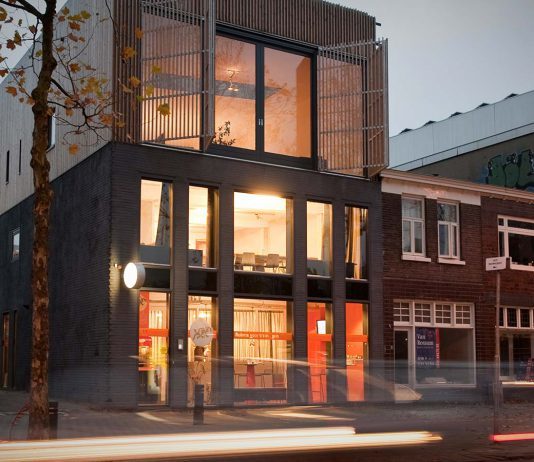
Aan de rand van het Griftpark, midden in het hart van Utrecht en met de Utrechtse grachtengordel om de hoek, zit vergader- en trainingslocatie Trainspot. Op deze unieke plek kun je niet alleen terecht om te vergaderen en trainingen te geven; sinds kort biedt Trainspot ook ruimte om te flexwerken. Deze ‘Powered By S2M-locatie’ onderscheidt zich niet alleen door hun locatie. Samen met hun flexibiliteit en klantgerichtheid maken ze het verschil.
Als trainingsbureau haalt Trainspot hun voldoening uit het ontwikkelen van mensen. “Alles en iedereen die bij ons met een grotere glimlach vertrekt dan dat hij/zij bij ons binnenkwam, betekent voor ons Missie Geslaagd” vertelt Jeroen, directeur van Trainspot. Ze doen er dan ook alles aan om door hun service een toegevoegde waarde te bieden aan de gasten: “Als een groep aan het einde van de dag zich ontzorgt voelt en in een prettige omgeving de inhoud goed heeft kunnen ‘raken’, dan zijn wij trots dat we die toegevoegde waarde hebben mogen faciliteren.” Er is dan ook van alles aanwezig om de ideale omstandigheden te creëren voor een training of vergadering. Beamers, flipovers en natuurlijk heerlijke koffie en thee om de volle focus bij de dag te houden.
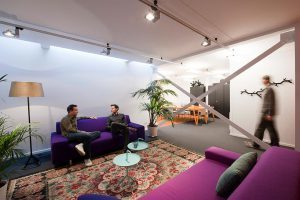 De samenwerking met Seats2Meet was voor Trainspot een logische keuze. Een informele sfeer, gastvrije service en vooral gebruik maken van sociaal kapitaal: samen dingen ontdekken en leren van elkaar. Kortom, overeenkomsten in overvloed. De persoonlijke betrokkenheid en de missie van Trainspot zorgen ervoor dat iedereen een warm welkom krijgt, of je nu een workspace of meetingspace boekt. Flexwerken kan door een workspace te reserveren in de lounge; een leuke speelse ruimte met plek voor zes personen. Toch behoefte aan een eigen ruimte? Geen probleem. Via de website van Trainspot of Seats2Meet kun je eenvoudig een meetingspace boeken.
De samenwerking met Seats2Meet was voor Trainspot een logische keuze. Een informele sfeer, gastvrije service en vooral gebruik maken van sociaal kapitaal: samen dingen ontdekken en leren van elkaar. Kortom, overeenkomsten in overvloed. De persoonlijke betrokkenheid en de missie van Trainspot zorgen ervoor dat iedereen een warm welkom krijgt, of je nu een workspace of meetingspace boekt. Flexwerken kan door een workspace te reserveren in de lounge; een leuke speelse ruimte met plek voor zes personen. Toch behoefte aan een eigen ruimte? Geen probleem. Via de website van Trainspot of Seats2Meet kun je eenvoudig een meetingspace boeken.
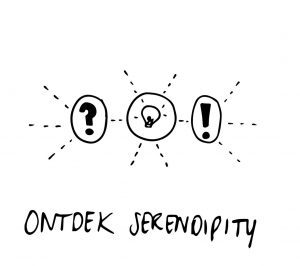 De overeenkomsten met Seats2Meet zijn niet alleen te vinden in service en omgeving. Trainspot ziet, net als Seats2Meet, de kracht in de groeiende netwerksamenleving, waarin onverwachte ontmoetingen (serendipiteit) een meerwaarde leveren. In onderstaand interview vertelt Jeroen over hun visie en ervaringen met de drie pijlers van Seats2Meet: connect, collaborate en grow.
De overeenkomsten met Seats2Meet zijn niet alleen te vinden in service en omgeving. Trainspot ziet, net als Seats2Meet, de kracht in de groeiende netwerksamenleving, waarin onverwachte ontmoetingen (serendipiteit) een meerwaarde leveren. In onderstaand interview vertelt Jeroen over hun visie en ervaringen met de drie pijlers van Seats2Meet: connect, collaborate en grow.
Wat is het belang van de netwerksamenleving voor jullie?
“Uiteindelijk is werken veel leuker als je dat samen kan doen. En ‘samen’ moet je wel opzoeken, dat gaat niet vanzelf. Je moet hiervoor open staan en ook willen denken in kansen en nieuwe dingen. Wij geloven sterk dat als je elkaar ontmoet er ook mogelijkheden zijn om elkaar te helpen. En dan is het heel simpel… als je iemand helpt, dan komt dat ergens wel een keer terug. En soms is dat business, en nog veel vaker gewoon leuke contacten die fun brengen in je werk!”
Hoe ziet volgens jullie de netwerksamenleving van de toekomst eruit?
“Net als bij het winkelen of het doen van je boodschappen, zal door het fenomeen ‘blurring channels’ (van ‘je doet je boodschappen bij de supermarkt, je bestelt pizza online en je hypotheek sluit je af bij de hypotheekadviseur’, naar ‘je doet boodschappen direct na je nachtdienst en dit is tegelijk ook je energieleverancier en de partij waar je je wandelvakantie naar de Alpen bij boekt). Ook voor werken geldt dat grenzen vervagen, openingstijden uit de klassieke economie verdwijnen en het aantal kantoren waar alleen mensen werken die dezelfde werkgever hebben drastisch zullen afnemen en sharing van skills eerder de standaard dan de uitzondering zullen zijn”.
Wat is jullie leukste serendipity-moment?
“Aangezien we pas recent gestart zijn, denk ik onze eerste ontmoeting/boeking. Deze flexwerker maakt er een sport van om alle nieuwe S2M locaties in Utrecht ook te ontdekken, volledig gericht op nieuwe contacten. Hij was in-between jobs en had aspiraties om trainingen te gaan geven. Niet direct wat binnen ons assortiment past, tegelijkertijd kunnen we hem wel met andere partijen in contact brengen die mogelijk relevant zijn voor hem.”
Wil jij ook je netwerk vergroten en tegelijkertijd genieten van de unieke service bij Trainspot? Kom vooral langs! Je bent van harte welkom om te flexwerken van maandag t/m vrijdag, tussen 09.30 en 16.30 uur. Ruimte voor jezelf nodig voor een vergadering, training of event? Meetingspaces zijn doorgaans beschikbaar van 08.00 tot 18.00 uur. De actuele openingstijden vind je hier. Trainspot is te vinden op Kleinesingel 33, tegenover het Griftpark. Of je nou op de fiets, met het OV of met de auto komt, Trainspot is goed bereikbaar.
The post Vergroot je netwerk en ga eens langs bij Trainspot; de nieuwe Powered By S2M locatie appeared first on Seats2meet.
Nice to Meet: Amin Rafiee, Blockchain Advocate
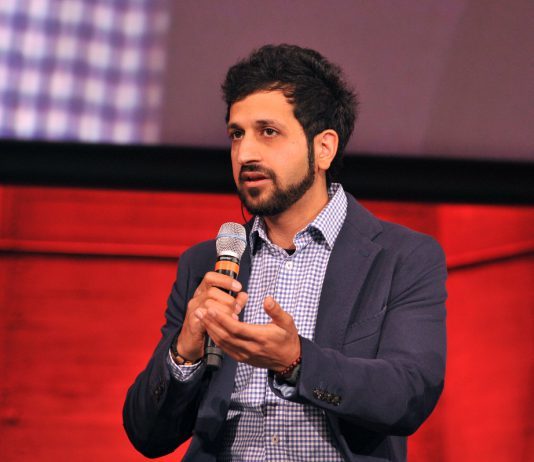
For our Nice to Meet series, we are happy to present an interview with Amin Rafiee, blockchain consultant, public speaker, designer and entrepreneur.
Could you please introduce yourself?
My name is Amin Rafiee. I have been travelling since 2014, learning about various countries and their societies, organizations and systems of governance. I hope that this knowledge can help me have a greater understanding of how decentralization can impact the world. My background includes industrial design, marketing, design, innovation management and psychology. I admire disruptive, decentralised technologies and systems, or projects which are designed in a way to support human growth from the bottom up. Tools that amplify people’s freedom, taking them from a place of weakness (victimhood) to a place of strength (self-sovereignty).
What is your background? What do you do?
As a regular speaker at Bitcoin and blockchain conferences throughout Europe, Australia and Central America, I have spent the last 6 years helping share the truth, freedom, and choice that Bitcoin and other decentralised platforms have to offer. I am an advocate of Peer-to-Peer (P2P) networks and decentralisation in an otherwise centralized world.
In 2016, I presented the technological benefits of decentralised services and tools in the European Commission. Later that year, I was invited as an advisor for the European Commission initiative held in Berlin – The European Social Innovation Competition.
In 2017, I had the opportunity to present BITNATION’s refugee aidand go on to win two awards – including the Grand Prix – at the UNESCO House in Paris – Netexplo 2017 Forum.
Later in 2017, I was invited to take part in a discussion that took place in Den Haag titled “Towards World Peace! U.N. 2.0.” that included Peter van der Vliet, the director of the Multilateral Organisations and Human Rights Department of the Ministry of Foreign Affairs and Simone Filippini, the chair of the Dutch United Nations Association.
In 2018, I was interviewed by SBS Television Australia to discuss the importance of cryptocurrencies within our societies.
In 2019, I was invited to speak at the widely known Anarchapulco event in Acapulco, Mexico.
Moving forward, I am currently collaborating with the 1M5 project. This is a project seeking to provide anonymous uncensored communication by routing messages and communication through Tor, I2P and meshing networks. This protocol is currently being developed to be used by Inkrypt for journalists and we are working to embed 1M5 in the Purism laptops – laptops designed for personal privacy and security. However this is not yet official.
You call yourself a “cryptoanarchist”. What does that mean?
While there are many titles associated with my name, I do believe this one can be interpreted by people in both a negative and a positive way. Some people may associate it with chaos and havoc, though this could not be further from the truth. Others like myself associate it with personal choice, freedom, security and the ability to self-organize. I think it’s best to use the definition as given by the Institute of Cryptoanarchy (my crypto-home), located in Prague:
“The term cryptoanarchy describes the growing environment of the unregulated Internet, where unlimited data sharing and the development of the free market became possible by using anonymous tools such as decentralized currencies like bitcoin, and anti-spyware encryption tools.
…new technology brings the possibility of choice – we are in a time that is defined by The Crypto Anarchist Manifesto . With a fast internet connection, reliable anonymity and decentralized currency, you preserve freedom which we have been losing as a society.”
How did you become a part of S2M ecosystem and became an advocate of Society 3.0?
I lived in the beautiful city of Utrecht for several years – the home of Seats2meet (S2M). I also gave presentations on cryptocurrencies at the Amsterdam location. There, I became acquainted with the S2M framework, locations and its functions.
I started to take part in the Permanent Beta meetups in Utrecht and eventually created my own meetup to co-host alongside the existing organization with a greater focus on decentralization, cryptocurrencies and personal privacy.
After learning more about the organization, I fell in love with it. I saw it as the future of how people and companies could work, organize and collaborate. Ronald van den Hoff, founder of S2M, is a visionary, open-minded individual who inspired me greatly. I had the opportunity to chat with him on several occasions. What he and others working with him have built has become a testament to how a large organization can provide a service without any money. This goes to show how we as people can organize, share, sustain while doing good for others and the world.
Could you tell us about your experience representing ideas of Society 3.0 in the Free Talk Live?
I think one of the most interesting parts of this is that people have a hard time grasping models which exist out of the traditional realm. If you tell someone about a business which has a monthly membership rate, that is something a person could easily grasp. It is what we are used to, “normaal doen” if you will.
Though if you introduce models where social capital completely replaces a monetary currency, people who are accustomed to traditional models of exchange can get confused.
They want to know how the system works and how it can sustain itself. It has the potential to automatically open the door for a fruitful conversation. Especially once you explain that we as individuals have something to offer which can supersede money: our time, knowledge, skills and ideas.
While the initial reaction may be negative or dubious in nature, it does also pave the way for an introduction to the sharing economy – which has been growing at an exponential rate. These are my personal articles in regard to this economic movement: on Medium and bitsonline.com
Could you describe your coolest serendipity moment within the ecosystem?
I believe it was meeting all the amazing people at S2M and seeing the various meetups that take place there. Open-minded individuals who are constantly looking for a different way to apply technology for the betterment of human beings all around the world. S2M’s environment facilitates such conversations to take place, something that I admire.
How did your involvement with cryptocurrency begin?
Long story short, a friend introduced Bitcoin to me back in 2013. At first, I was hesitant and wary of it, though as time went by I decided to read the whitepaper and take the time to understand the concept, and the rest is history. I dedicated myself fully to the technology, movement, communities and concepts that have emerged since.
During your time in Europe, you spent 3 years using just cryptocurrency. Could you tell us about this experience?
I am now nearing my sixth year living on cryptocurrencies – namely Bitcoin.
To begin with,especially back in 2013 and 2014, it was challenging to say the least. I would have to find someone through localbitcoins, a website to buy and sell bitcoin, or meetups to directly sell to. The experience I gained through such methods became the pillars on which I built my P2P knowledge – as people we can achieve amazing things. As the years went by and Bitcoin debit cards were introduced the entire process became much easier.
It is also worth mentioning that out of all places I have been to the Netherlands is one of the easiest places to live in with cryptocurrencies. There is Thuisbezorgd (Dutch version of takeaway.com) and many other online stores which accept Bitcoin. Furthermore, there are many restaurants, bars, pubs and other physical locations which accept cryptocurrencies – see Arnhem Bitcoin City. As long as there are people who use and believe in the powerful potential of cryptocurrencies, you can find a way to exchange it or pay your bills with it.
For the last two questions, we like to use “Jori” – an icebreaker game, which randomly picks a profound and a funny question to facilitate better connection and communication between people.
So questions randomly picked for you are as follows:
Profound question: What is the day-to-day activity that makes you feel the most powerful? Describe this feeling.
Honestly, there is no greater feeling than waking up and heading straight to the gym – without breakfast – working with the Olympic rings or doing some power exercises like the power clean and then, taking a cold shower! It makes me feel alive, pumped and ready to tackle the day.
Funny question: You won a contest and now you’ll have your own statue placed on the Moon. What pose would you make for it? Why?
That’s an easy one. I would want to have it in a handstand position. I have been doing handstands since I was a kid. Throughout the years of travelling, I have been doing my best to take photos in beautiful places while doing a handstand. It has become an iconic thing for me actually. Here is one example, taken in Australia:

Thank you! 



